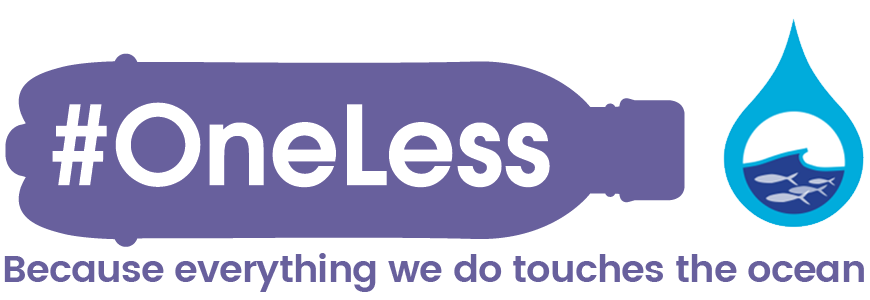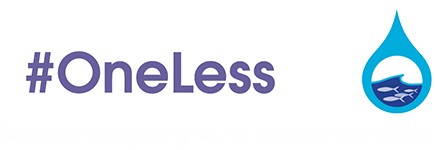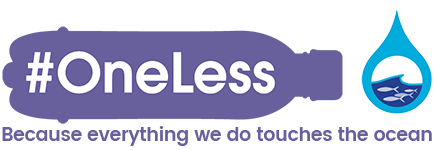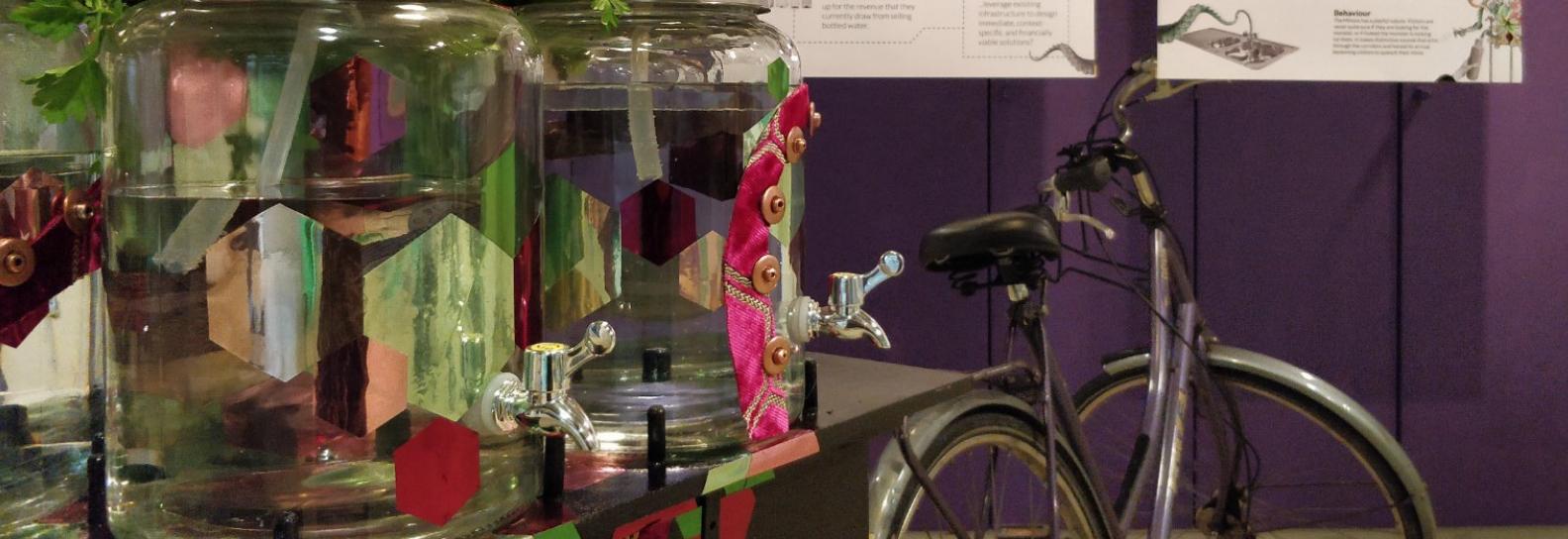September 19th, London – A group of designers tasked with imagining how London can become free of plastic water bottles has come up with a striking set of ideas to help ramp-up London’s ‘refill revolution’ and eliminate bottled water. These are on show at this week’s London Design Festival.
Plastic bottles are one of the most common items of marine litter, posing a major threat to marine wildlife. Londoners get through over a billion disposable water bottles a year, many of which could end up in the River Thames and make their way out to the ocean.
The young creatives, including product and graphic designers, were given a set of challenges for how to help venues, retailers, events and places in London go plastic-bottled water free.
The task involved working with expert mentors in sustainable innovation and behavioural change, to devise ways of shifting people’s perceptions about tap water, of igniting a behavioural shift away from single-use plastic bottles towards refillable bottles, and of providing Londoners and visitors to the city with easy access to water refill stations. The ideas aim to help transport hubs, hotels, college campuses and pedestrian zones, as well as big events like open-air concerts and sporting events, go plastic-bottled water free.
The concepts being showcased in the Brompton District at 3 Yeoman’s Row at the Design Festival until the 23rd September include eye-catching educational and awareness campaigns about the danger of plastic pollution in the ocean, the real costs of plastic water bottles from manufacture to disposal, and designs for fountains to inspire more people to ditch their reliance on ‘disposable’ plastic bottles. Selfie’ posters also aim to shift perceptions and make plastic bottles socially unacceptable.
The exhibits include the “Water Monster” mobile fountain styled like a steam-punk octopus which can be used at events and other locations where permanent fountains are not available, a London Wave fountain design to inspire passion for protecting the ocean, and arresting sculptures resembling man-made fossils embedded with plastic waste from the River Thames, to show the lasting impact of disposable plastic bottles.
Striking posters envision the extinction of the blue whale caused by our reliance on the convenience of bottled water, and explain that it takes 162 grams of oil and seven litres of water just to manufacture a one-litre single-use plastic water bottle. ‘Selfie’ posters aim to make plastic bottles socially unacceptable.
The concepts are the first outputs of the #OneLess Design Fellowship, which brings together experts in design, technology and the circular economy to explore ways to end the use of single-use plastic water bottles, which are part of a huge plastic pollution problem affecting the world, and especially the ocean.
The Fellowship was launched in early 2018 by the #OneLess initiative led by the Zoological Society of London, and sustainability advisors Forum for the Future. #OneLess recently teamed up with the Mayor of London to install a network of drinking fountains across London, as part of the movement to transform London into a ‘refill city’.
Londoners have one of the highest rates of bottled water consumption in the country, getting get through two million single-use plastic water bottles a day. Dr Heather Koldeway, co-director of the OneLess campaign, said “Shifting us all away from choosing to buy bottled water is not an easy fix. It’s going to require a profound behavioural and value shift about the safety of tap water and the impact of single-use plastic bottles. We are thrilled to see such a variety of innovative ideas about how to achieve this and make people proud to join the refill revolution.”
Corina Angheloiu of Forum for the Future said: “In July, we hosted a week-long summer school with our design fellows, with expert coaching and mentoring, to start developing these innovative ideas. Our Fellowship aims to foster lasting engagement with a new generation of thinkers and designers who will help make change happen. To solve a problem like this requires a fundamental change in people’s thinking, as well as the infrastructure to support them making a different choice. It will not be a quick fix, but initiatives like ours will help it happen, I am certain.”







